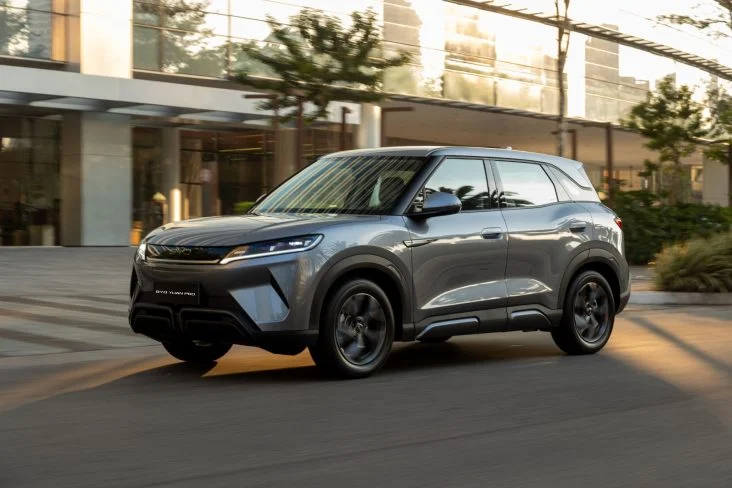
BYD took the lead in passenger vehicles in China in 2024, exceeding the traditional partnerships between state automakers and foreign manufacturers for the first time.
Marklines data indicate that the company has traded approximately 3.65 million units, a growth of 46% over the previous year.
Zhejiang Geely Holding Group, another private automaker, also recorded a significant advance, with a 30% increase in sales, reaching 2.01 million vehicles and occupying the third position in the ranking.
Volkswagen, which had led the Chinese market for decades and even sold more than 4 million vehicles a year in the country, fell to second place after a 6% retraction in sales, totaling 2.98 million units.
General Motors also registered a 10%drop, while Toyota and Honda had significant declines.
Since the late 1980s, the Chinese automotive sector has been driven by joint ventures between state automakers and foreign companies, with the objective of facilitating technology transfer.
Partnerships such as Volkswagen with China Faw Group, GM with Saic Motor and Toyota with Dongfeng Motor consolidated the presence of these brands in the local market. However, the expansion of private automakers, coupled with the government incentive with electric vehicles and plug-in hybrids, changed this dynamic.
The growth of BYD and Geely reflects this transformation in the sector. Both companies have invested in the production of new energy vehicles, a segment that also attracts the entry of large technology companies, such as Huawei and Xiaomi.
According to the Chinese Association of Automobile Manufacturers, sales of these vehicles, including exports, grew 36% by 2024, totaling 12.86 million units and representing 41% of the new car market in China.
Foreign and state -owned companies that have been slow to invest in electrification face challenges to maintain their competitiveness. General Motors reported a loss of $ 4 billion in the last quarter due to the restructuring of its joint ventures with Saic Motor.
Japanese automakers, such as Toyota, Honda and Nissan, reduced their production capacity and promoted personnel cuts in the country.
In addition, state Dongfeng and Changan Automobile have announced that its controllers plan to merge with a “central state company”, a movement that can directly impact Honda and Nissan operations in China.
The advance of Chinese private automakers also affects the global automotive market. By 2024, BYD sold 4.27 million vehicles worldwide, surpassing manufacturers such as Honda, Nissan and Suzuki.
Although most sales occurred within China, the company has been expanding its presence in Southeast Asia and Latin America.
Geely, in turn, has recorded a record of 3.33 million units sold globally and projects to reach 5 million vehicles annually by 2027. Its division of luxury electric vehicles, Zeekr, already operates in more than 40 markets.
Competition between Chinese automakers in the segments of electric vehicles, autonomous steering and automotive software has driven the technological development of the sector. Given this advance, Japanese automakers evaluate the possibility of mergers to face the competition.
At the same time, the United States and the European Union adopt tariffs on Chinese car exports in an attempt to contain their expansion. In response, companies like BYD study factories in Europe to avoid commercial barriers.
In the United States, former President Donald Trump recently suggested the possibility of allowing the installation of Chinese factories in the country, which could impact the sector in the coming years.
With value information
Source: https://www.ocafezinho.com/2025/02/12/byd-lidera-mercado-chines-de-veiculos-de-passeio-pela-primeira-vez-em-2024/

